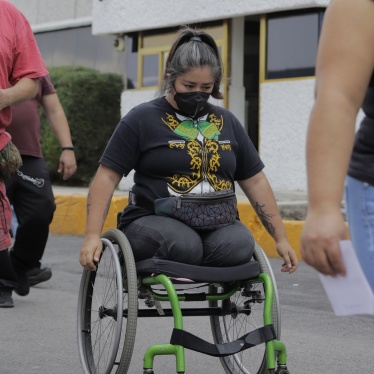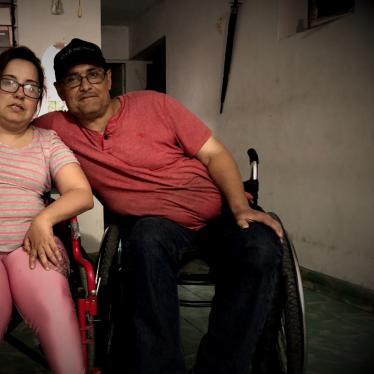“I want to help change the mental health system because it is abusive against us, people with psychosocial disabilities,” Felipe Orozco told me last week.
Felipe is a disability rights advocate and active member of a coalition urging Mexico’s Senate not to adopt a regressive mental health bill. He has been hospitalized five times since 2017 in connection with a mental health condition, shackled for up to 12 hours at a time and forced to urinate and defecate while strapped to a bed.
On July 28, the Senate put the mental health bill on hold after Mental Health with Human Rights, a coalition that includes Human Rights Watch and numerous organizations for people with disabilities in Mexico, advocated against it. The bill would have reinforced a mental health approach that relies heavily on forcing some people with mental health conditions to be hospitalized and treated without consent.
The Senate was responsive to the coalition’s call and agreed to open a consultation process to reform Mexico’s mental health legislation. What’s needed now is a proper framework to ensure people with disabilities can effectively participate in this vital process.
The government should engage in meaningful consultations not only because it is the right thing to do, but also because it is required to do so under the Convention on the Rights of Persons with Disabilities (CRPD), which Mexico ratified in 2007. Since then, Mexico’s Supreme Court has overturned state legislation because of a lack of adequate consultation with organizations for people with disabilities.
Consultation needs to be more than just lip service. The CRPD Committee, which monitors compliance of the treaty, has said that to be effective, such consultations should involve organizations for people with disabilities from the beginning of the process, rather than after a policy or legislation has already been finalized.
Also, consultations should not be used to limit human rights recognized in international human rights law. For example, it would be inappropriate to use a consultation procedure to justify stripping people with disabilities of their right to full legal capacity and to take away their agency in mental health treatments.
With a meaningful and effective consultative process, Mexico has a unique opportunity to create a new system through legislation that moves away from generations of abusive mental health practices. As a first step, the government should genuinely listen to the voices of those like Felipe Orozco so that no one endures his fate again.









